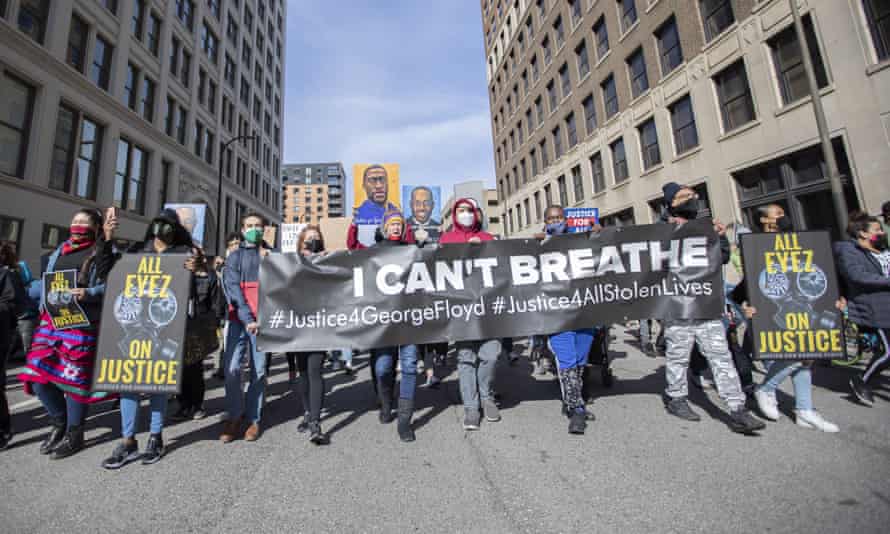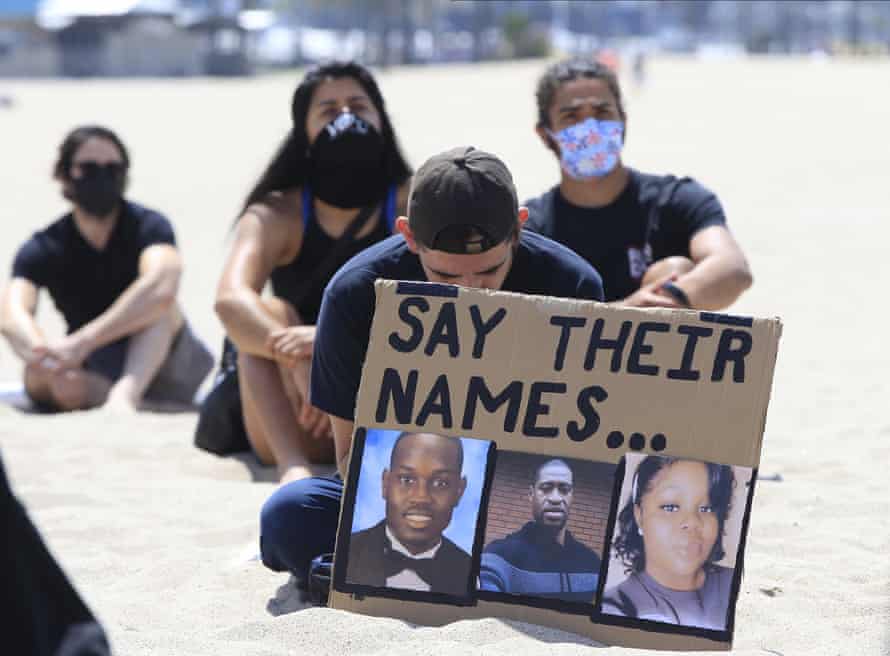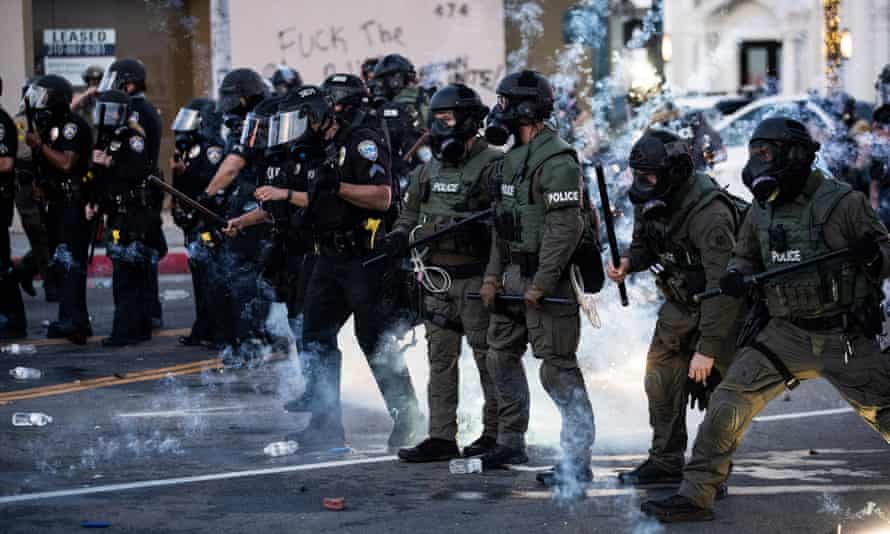Breonna Taylor died more than a year ago. But US policing has barely changed
Thousands of protesters were arrested last year. Some face harsher punishments than the officers who killed Taylor

It has been over a year since Breonna Taylor, a 26-year-old ER technician, was killed by police officers in her home. It has been nearly a year since George Floyd, a former rapper and father of five, was killed by officer Derek Chauvin in broad daylight. And it has been some 300 days since the subsequent uprisings in their names. Thousands of protesters were arrested, and while the vast majority have had their flimsy charges dropped, there are many still facing harsher punishments than the officers who killed Taylor face. There is legislation being passed in the name of the slain and a handful of cities have made modest cuts to police budgets due to the hard work of local organizations. At the same time, many local governments have doubled down on their support for violent policing, and the system that necessitated a movement to defund the police remains pretty much entirely intact and murderous.
There have already been at least 132 people killed by police officers this year, including Kurt Reinhold, a 42-year-old Black man killed after being stopped for jaywalking – a crime that is almost exclusively used to target Black people and other people of color. Last year saw a total of 1,004 people shot to death by police, and while the majority of those people were white, Black people were still killed disproportionately to the total population. While some of these murders may seem “justified,” it is important to remember that the US kills significantly more people than other countries of similar political and economic standing. For example, according to a 2015 Guardian report by Jamiles Lartey, police killed 59 people in the US in the first 24 days of 2015, compared to 55 people killed in the last 24 years in England and Wales combined. The city of Stockton, California, saw three police shootings in the first five months of 2015, while the country of Iceland – which has roughly the same population size – had only experienced one killing by police officers in the entirety of its existence.

The violence of American police was further revealed by the protests in response to the killings of Breonna Taylor and George Floyd. The uprising was framed by police departments as rioting and looting, but report after report has revealed that police across the country mishandled what were overwhelmingly peaceful protests. If anything, much of the violence this summer was arguably triggered by heavy-handed law enforcement who showed up with tanks, teargas and tactical shields. 14,000 protesters were arrested within the first two and a half weeks of the initial uprising, and for months after, police continued to round up left-leaning organizers they sought to punish for the summer’s activities. Thousands of those charges have since been dropped, with many more dropped each day, as it becomes clear that police and federal agents were more interested in political vengeance than evidence. In a victory for press freedom, Andrea Sahouri, a reporter covering Black Lives Matter protests in Iowa who was charged with failure to disperse and interference with official acts, was recently acquitted. Charges were dropped for a group of New Jersey youth who faced felonies for merely tweeting and retweeting an image of a police officer.
The trials are far from over, and police and judges are doing whatever they can to hurt activists. One Phoenix protester was threatened with indefinite detention, and then released only after agreeing to not participate in any public protests. There is a growing movement in Arizona and elsewhere to push for unjust charges to be dropped; 15 protesters already saw their cases dismissed after initially being charged as members of a street gang.
At the same time we haven’t seen many consequences for – or humility from – police departments or the city governments who control them. No officers have yet been charged in the killing of Breonna Taylor. No officers were charged in the killing of Daniel Prude, a Black man who died after officers pinned him to the pavement and placed a hood on his head in the midst of a psychotic episode, nor were any of those who participated in the apparent cover-up of the incident. Robert McCabe and Aaron Torgalski, two Buffalo police officers seen on video pushing a 75-year-old protester to the ground, had their charges dismissed this February. Joseph Bologna, Jr, a former Philadelphia police officer, was fired but had all charges dropped after beating a student with a baton on camera. As of December, the five officers who surrounded and beat 28-year-old home health aide Rickia Young – before arresting her and essentially kidnapping her child – have not been arrested or charged for the assault, which took place in the midst of the second wave of the uprising in Philadelphia.

The violence of the police as a whole does not look to be abating. Portland police officers have been seen kettling protesters, the practice of corralling entire protests, then detaining all those within, charging some while keeping records and photographs for most. Minneapolis is gearing up for war against its residents in preparation for the potential acquittal of Derek Chauvin, the police officer who killed George Floyd. Kentucky, the home state of Breonna Taylor, is in the process of making it illegal to taunt police officers in a bill that has already passed the state’s senate. And while the federal government has made some efforts towards police reform, it is far from what many activists had hoped for, even including new potential funding for police departments.
There has been good news, like the dropping of charges against Kenneth Walker, Breonna Taylor’s boyfriend, and the first successful lawsuit against the city of Philadelphia for teargassing an entire Black neighborhood. But these are unfortunately not the kind of victories that will fundamentally alter law enforcement in a way that can prevent future murders. For that, we will need organizations capable of redefining the very nature of the United States. And the country may very much need another uprising.
Akin Olla is a Nigerian-American political strategist and organizer. He is the host of This is the Revolution Podcast.”
No comments:
Post a Comment